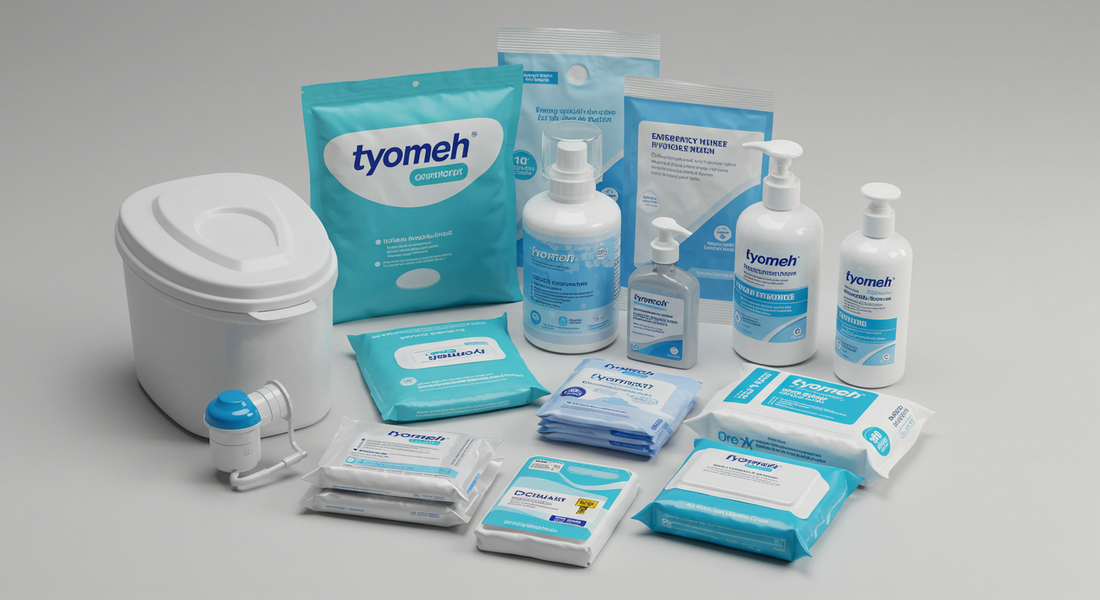
Staying Healthy When the Water Stops: A Guide to Emergency Hygiene & Sanitation
Share

In any disaster scenario, our primary focus is usually on food, water, and shelter. But there's a fourth, equally critical pillar of survival that is often overlooked: hygiene and sanitation. The critical link between sanitation and health becomes dangerously apparent when the water stops flowing and modern plumbing fails. The dangers of poor hygiene in a crisis are severe, as the spread of disease can become a more immediate threat than the initial disaster itself. This guide covers the essentials of disaster sanitation to keep you and your family healthy when infrastructure is down.
The Emergency Toilet Solution
One of the first and most pressing problems you'll face is waste management. Having a plan for an off grid sanitation system is non-negotiable.
-
Twin Bucket Sanitation System: This is a simple, effective, and widely recommended DIY method. It consists of two 5-gallon buckets with tight-fitting lids. One bucket is designated for urine (liquids), and the other for feces (solids). After each use of the solids bucket, the waste is covered with a carbon-rich material like sawdust, peat moss, or kitty litter to control odor and begin the composting process. This separation is key to managing waste safely and reducing odor.
-
Portable Camping Toilets: For a more convenient, ready-made option, portable camping toilets are excellent. They are designed to be compact and easy to use, often with a holding tank that contains chemicals to break down waste and control odor. Their main pro is convenience, but the con is that you will eventually run out of the necessary chemicals, whereas a bucket system's cover material is often easier to source.
Personal Cleaning Without Running Water
Knowing how to stay clean without water is crucial for preventing skin infections, rashes, and morale-crushing discomfort.
-
Body Wipes and No-Rinse Soaps: Large, heavy-duty body wipes (often marketed to campers or as adult washcloths) are your best friend. They allow for a full-body "sponge bath" without using up precious water. No-rinse soaps and shampoos are also fantastic, allowing you to lather up and simply towel off, leaving you feeling clean and refreshed.
-
Makeshift Hand-Washing Station: Hand washing is one of the most effective ways to prevent the spread of germs. You can create a simple station using a large water jug with a spigot, a bar of soap in a dish, and a catch bucket below. This allows you to use water efficiently for the most critical hygiene task.
Managing Waste Safely
Improper waste disposal can contaminate your environment and lead to serious health risks.
-
Human Waste: For the twin bucket system, the urine bucket can be diluted with water and safely poured on a compost pile away from your main living area. The solids bucket should be kept sealed. For long-term situations, humanure composting is a viable but complex topic that requires further research. In a short-term emergency, the sealed bucket should be stored away from your home until services are restored.
-
Trash and Greywater: All trash should be bagged and sealed to avoid attracting pests. Greywater (from hand washing or cooking) should be disposed of at least 200 feet from any water sources to prevent contamination.
Assembling Your Hygiene & Sanitation Kit
Your emergency hygiene kit should be packed and ready alongside your other prep supplies.
-
Essential Items Checklist:
-
Toilet paper (remove cardboard tubes to save space)
-
Two 5-gallon buckets with lids, or a portable toilet
-
Sawdust, peat moss, or kitty litter
-
Heavy-duty trash bags (for lining the solids bucket)
-
Bar soap and hand sanitizer (at least 60% alcohol)
-
Large body wipes and/or no-rinse soap
-
Toothbrushes and toothpaste
-
Feminine hygiene supplies
-
Disinfectant wipes or spray
-
Latex or nitrile gloves
-
Conclusion: Hygiene is a Cornerstone of Survival
In a crisis, maintaining your health is your top priority, and proper hygiene is the cornerstone of good health. The small preparations you make now can make a huge difference in your comfort, safety, and well-being during a prolonged emergency. A well-thought-out sanitation
